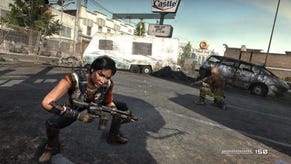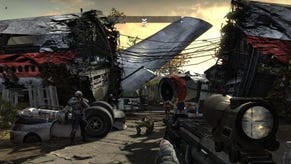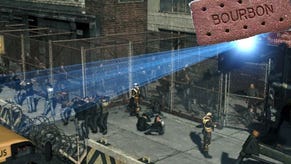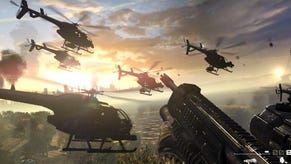Editorial: THQ's Online Pass DRM
What do you own? Not "pwn", you nu-gamer young person. But own. What do you pay for that's yours to do with as you wish? Food, clothes, knitting needles. But what about games? When you pay money for a game, do you own it? Increasingly, not in any understood meaning of the word. Like music over the last couple of decades, we're currently sleeping through having our rights as consumers taken from us, while the prices stay the same. If you buy an album, do you own that music? No - not at all. If you do anything with that music other than listen to it on the CD it came on, or as the files you downloaded, then you're breaking an ever-more spurious collection of laws. And increasingly, gaming is going in the same direction. What was once considered sharing - and we're not even talking about copying here - is now being treated as theft. And THQ, as reported by Shacknews, are going out of their way to prevent sharing or re-selling of Homefront.
THQ will be shipping Homefront - the Korea-invades-the-US FPS - with their Online Pass system. This means it ships with a code that only lets you create a multiplayer account once. Lend the game to a friend, or buy it pre-owned, and you'll find you're refused full access to the multiplayer. Instead, you'll get what's essentially a demo - you will only be able to reach level 5 of the 75 on offer. To get the rest of the game, you'll need to pay $10 (or whatever the rest-of-world equivalents may be).
This essentially means that when you buy Homefront, you do not own the rights to play the multiplayer game. And as such, you cannot transfer that right onto anyone else. It's presumably a reaction against the perceived loss of sales from the increasingly popular pre-owned market, where the full price of the sold game goes to the shop selling it, rather than shared with the original publishers and developers. There is clearly a large argument to be had here, about the relative fairness of this situation. But it has far wider reaching consequences than simply whether Gamestation can resell the same game twelfty times. It affects charity shops, jumble sales, yard sales. It prevents sharing with a buddy. It stops you from giving the game to a poor friend once you're done with it. In all those circumstances, when you buy or borrow the game, you're then are forced to pay a fine.
Which means that like music, increasingly when we pay our £30/$50 for a game, we're not buying it, but renting. It feels like buying - we hand over a significant quantity of cash, and get given a product. It feels like buying a pencil case. Except when I then lend that pencil case to my friend, he doesn't find that the zipper won't open until he's paid WH Smiths a fee. We take the box home, but we don't actually own what's inside it. It is the complete death of First-Sale Doctrine.
Clearly this has always been the case. If we owned it, we'd also have the right to make copies of it. (Although UK law currently completely contradicts itself on whether we're allowed to make back-up copies of our games.) As we purchase, we automatically agree to a long list of criteria which we're required to follow so long as it's in our possession. But as that list gets longer, and more punitive, at a certain point we have to start asking questions about where our rights are going.
I would like to see a requirement that games very clearly explain on their front covers that while you are buying the ability to play the single player game (something that, thank goodness, Ubisoft is beginning to return to its customers!) you are in no way buying the rights to play multiplayer. With EA announcing another round of servers to be shut down, and THQ making it clear they don't want multiplayer to be sold on or shared, it should be made absolutely clear to the consumer that multiplayer is not included in the price. And it would be nice to see the prices adjusted accordingly, if they're not willing to sell it to us.










